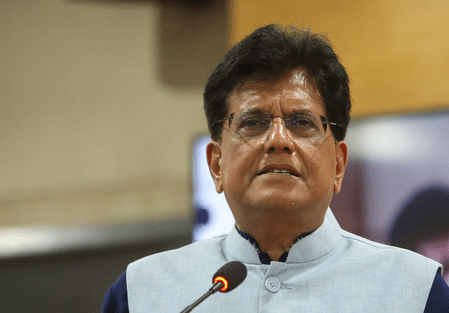India achieves 4,000 pc solar capacity growth, time to build supply chain resilience: Piyush Goyal

India has achieved a staggering 4,000 per cent increase in installed solar capacity and the country’s renewable energy capacity now stands at a robust 227 GW, Commerce Minister Piyush Goyal said on Thursday.
Addressing the 11th India Energy Storage Week (IESW) 2025 here, the minister said India is likely the first G20 nation to have met its Nationally Determined Contributions (NDCs) under the Paris Agreement.
Highlighting the recent Cabinet approval of a Rs 1 lakh crore Research, Development and Innovation Fund under the leadership of Prime Minister Narendra Modi, he noted its potential to match R&D investments of Rs 6-7 lakh crore in advanced economies, given India’s cost advantages.
On infrastructure, the minister called for enhanced collaboration among stakeholders to build both charging and battery swapping systems, thereby accelerating electric vehicle adoption and ensuring affordable, accessible e-mobility.
He also urged the industry to build supply chain resilience by reducing dependence on specific geographies and adopting new technologies to achieve self-reliance in the energy sector.
“India’s ambition should encompass the entire value chain — from raw materials and cell components to battery packs, semiconductors, management systems, and recycling — ensuring a robust and self-sustained clean energy ecosystem,” Goyal told the gathering.
Highlighting India’s manufacturing progress in the last decade, Shri Goyal said that the country’s solar photovoltaic module capacity has increased nearly 38-fold, while photovoltaic cell capacity has risen 21-fold.
He mentioned the PM Surya Ghar Yojana, which aims to equip 1 crore households with rooftop solar panels to make them energy self-sufficient and reduce electricity bills.
The minister also highlighted PM Kusum Yojana, which supports the expansion of solar pumps in India’s agrarian economy. Additionally, the government has launched a Production Linked Incentive (PLI) programme to boost manufacturing of Advanced Chemistry Cells (ACC), he added.
The minister underscored the importance of storage technologies — whether in the form of batteries, pumped storage, hydro storage, or geothermal — as essential for meeting India’s future energy demands.
He highlighted that the energy sector will be a driving force in India’s transition to clean and renewable sources of power, and this vision has already been reflected in the country’s achievements over the last decade.
Goyal reaffirmed India’s target of achieving 500 GW of renewable energy capacity by 2030, and reiterated that energy storage will be central to this journey.











